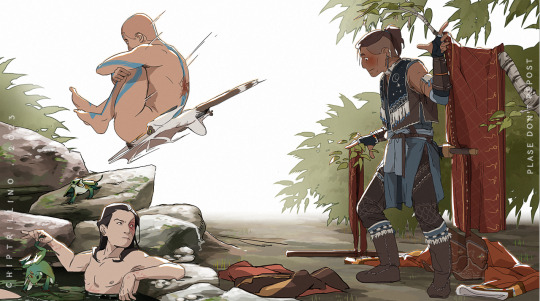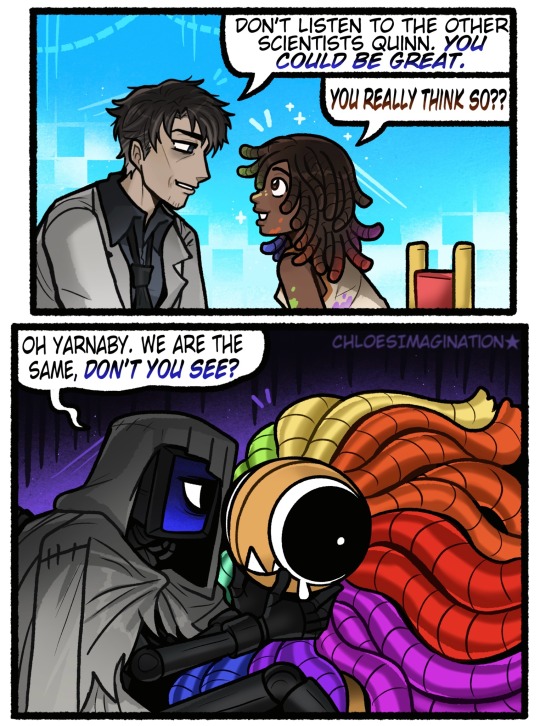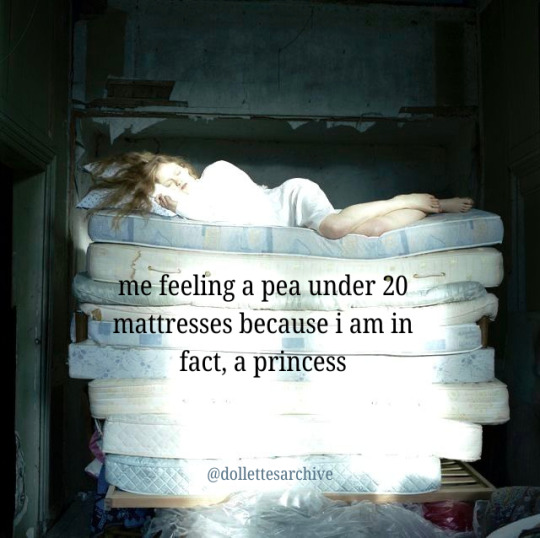#truly useful
Explore tagged Tumblr posts
Text
Louie: damn it
Donald: Louie! We don’t use bad words in the house!
Della, somewhere in the distance: fucking, fuck!
#Donald just sighing then going to repeat the exact same lecture he’s given her 100x over#della is a potty mouth and I stand by this#which Louie loves#bec how you gonna tell him off for not real swears when his mother is dropping th C-word left and right#truly useful#Dewey thinks it’s funny#so he tries copying her but tbh th words don’t sound right coming out of his mouth#whereas Huey is a mix of nervous funny and disappointed#Donald is just fed UP#my man is tired#and Della Isn’t going to stop anytime soon#louie duck#donald duck#della duck#ducktales#incorrect quotes
110 notes
·
View notes
Text

౨ৎ‧₊˚ they'll message you after a post talking about how sad and ill you are too?? can they just be normal 🙏
#made by yours truly#girlblogging#girlblog#girlblogger#this is what makes us girls#girl interrupted syndrome#hell is a teenage girl#lana del ray aka lizzy grant#gaslight gatekeep girlboss#girl interrupted#nympette#cinnamon girl#girlhood#just girly things#locally hated#localy hated#lana unreleased#hyper feminine#female rage#female hysteria#divine feminine#manic pixie dream girl#made by me
24K notes
·
View notes
Text

How I found out about trump getting shot
#donald trump#us politics#its like getting ur news from a destiel meme. but kinda worse. when you see the top of a destiel meme u expect to hear something insane.#not in the ao3 tags though.#truly a *teleports behind you* moment#imagine trump as an ao3 author like “sorry for the slow updates. i got shot :((! enjoy the food anyways#thanks ao3 author#archive of our own#trump#ao3#history#archiveofourown#fanfiction#joe biden#politics#funny
51K notes
·
View notes
Text










Montjuic cemetery in Barcelona
#photography#I spent like 3 hrs here today it's massive and has a lot of elevation changes#But the cemeteries in here confuse me so much... I think I'm too used to the park-like design of German cemeteries#So to walk in such a huge quiet place full of cement and stone and very little nature is so eerie#And I've seen VERY FEW people both here and the one yesterday#Which makes sense - it's not built like a park so people don't treat it like one#But still such an eerie feeling#Like it truly is a place just for the dead alone and not for the grieving#While I'm used to cemeteries built for the grieving
9K notes
·
View notes
Text

I like to think that before the world got mean, John and Arthur would goof around and act like brothers
#the way that dutch describes young arthur#that he used to be happier#that he was like sean#lives in my head rent free#before eliza and isaac got murked#is what i mean#and before john left#during that period of time where they were both young enough to act like kids#though they never truly were!#LOL#the brothers ever#red dead redemption 2 fanart#ourthur#rdr2#arthur morgan#john marston#rdr2 fanart#red dead redemption 2
7K notes
·
View notes
Text
when i started watching g1 for the first time, i was NOT prepared for whatever the fuck its doing with Megatron's transformation😭😭


it gave me so much psychic damage
#transformers#maccadam#tf g1#megatron#starscream#my art#as a kid i was pretty isolated from tf media so i had NO idea megs originally was a gun#from tfp and cybertron games i knew he was a jet and a tank so this thing gave me a fucking whiplash#and the mass change..... oh g1 youre so silly#i watched 2 seasons of g1 so im used to it by now but the first time was truly horrific for me#like WDYM the leader of decepticons can be held in a hand in his alt-mode??? buddy pls how do you lose all the mass in a blink of an eye😭😭
12K notes
·
View notes
Text

Miss Piggy at the pride parade 🌈🏳️⚧️ a true icon
#miss piggy#the muppets#an icon#lgbtq#pride#pride 2025#shes truly the most faggot of us all 🌈💖#f word#the pride parade festival was canceled downtown Saturday due to weather#so the church in our neighborhood did a pride parade on sunday#it was cool i got to walk in it
7K notes
·
View notes
Text

Dick is never going to get to have a midlife crisis because Bruce is going through his for him. also because he will not be making it to 40.
#DC#Batman#Bruce Wayne#Dick Grayson#Nightwing#Art by me#Bruce is so normal about Dick#His internal monologue is always I am so proud of Nightwing he has truly grown to be such a great man and hero he's the best of all of us#also being around him is completely unbearable I can't exist in the same space as him for too long lest I start taking psychic damage#like alright buddy. maybe stop taking that out on him though#I know you'd like for your kids to stay (with you) young forever but look at how that turned out with the other one#DG your thirties are going to be a treat#dc comics
6K notes
·
View notes
Text
I'd like to tell you all a story about my grandmother.
My grandparents raised their children, four girls (one of them my mother), to be fighters. My aunts marched in Washington for women's rights with babies strapped to their chests and like to joke that all of the grandchildren who came from that line (including myself) were born with picket signs in their hands.
But it started with my grandparents. They fought hard for what they believed in. They marched against Vietnam. They marched for Martin Luther King. They marched for women's rights. They marched for a better future.
But let's talk specifically about my grandmother for a moment.
My grandmother unfortunately passed away in 2016. She had to watch the first Trump election and did so knowing that it would probably be the last election she'd ever see. And there is some argument there that she could have given in to fear and defeatism. She could have decided none of it was worth it, and she could have decided that fascism had won and the world was over.
But she did something else instead.
To give some context, my grandparents had friends who were Republicans. I say were, because they shifted from the normal Republican towards the MAGA Republican we see today. And despite a very clear message from my family about how we felt, they were more than ready to still come to the funeral as if everything was normal. Like their beliefs were normal. Like they were welcome to celebrate someone who had fought so hard for the rights of other people.
These were people who would have absolutely used their rhetoric to scream and shout if they were left out or disinvited.
And so my grandmother, even past her final moments, pulled the most brilliant, petty move I've ever seen.
She'd decided ahead of time that everyone who had known her was more than welcome to attend but that she wanted everyone attending the funeral to donate money. That was the requirement to be invited. And so everyone did just that. There was no talk about what the donations were for, just that they were appreciated. I want to say that the assumption was the money would help pay for funeral expenses and give the family some support while we grieved.
Except that wasn't the case.
Because in those final moments of the funeral, the rabbi stepped forward to thank everyone, and then very cheerfully announced;
"Arlene was so happy to know just how many people were coming to join us here today. She couldn't have been more proud of her family. And I'm sure she would have been elated to see just how much money you all gave today to Planned Parenthood."
When I say that the faces of those people are enshrined in my memory, I mean it. The anger, the devastation, the rage, the betrayal. It was an absolutely gorgeous display of true defeat at the hands of a boss ass old lady who literally fought with her last breath and threw up both middle fingers all the way out the door.
What I'm saying is this.
It is very easy to feel defeated. It is very easy to think that everything is over, and there's nothing left for us to do. It's very easy to say that fascism won, that fear won, that hate won.
But that's only true if you let it be true.
There is always more that we can do. There is a future that is still worth fighting for. And it's more than possible, even when it doesn't seem like it.
And fighting is going to look different every time.
Some days it will look like picket signs in our hands.
Some days it will look like spending time with friends and family and people you love and knowing that you have a community that supports you and your vision of a brighter future.
And some days, it's pulling absolute natural level 20 petty trickster shit even after you've left the world.
Because you can always make an impact and you can always add a little brightness to life, and if that means tricking a group of MAGA idiots into throwing their money behind Planned Parenthood in the middle of your own goddamn funeral then that's what it means.
Keep fighting. People have done it before you. People will continue to do it after you.
And enjoy the little victories.
(Even the petty ones)
#us elections#equality#equal rights#protesting#picketing#fighting#we can do this#we truly can#take a break and then keep fighting
13K notes
·
View notes
Text



Just boys things! its a continuation of this illustration!
#atla#chip!art#zuko#sokka#aang#iroh#momo#lilly pad frog!#thezukka if we squint but none of us truly squints
32K notes
·
View notes
Text

Yarnaby's story in poppy playtime is tragic,,
#myart#chloesimagination#comic#poppy playtime#ppt#harley sawyer#the doctor#quinn navidson#poppy playtime chapter 4#Harley when I get you fr fr man#the story of Quinn makes me sniffle and sob#Harley effectively tried manipulating Quinn to be his perfect monster#but he was just not enough and yet still uses the benefits he has#as in the strength and his loyalty to him as yarnaby#makes me so sad cause it probably gave Quinn the impression#they were friends or Harley is the closest thing to a father he has#poppy playtime went off with their lore but it truly kills me#Harley is evil as hell he did deserve his brain exploding#no matter how neat of a character he is#I hope yall like their designs btw!!
6K notes
·
View notes
Text

subject, specimen, spectacle;
should i say that you're dead?
#my art#jujutsu kaisen#jjk#jjk fanart#jujutsu kaisen fanart#gojo satoru#jjk gojo#jjk satoru#satoru gojo#gojo#bugs/#insects/#eye horror/#every time i post gojo art i feel scummy using like . the slew of tags this mf has#im like wow u look desperate gdfjkdjkg#listen ok im not a gojomain idk where people look fr content#anyway for not a gojomain i sure do have a lot of artistic breakthroughs whenever i draw him#first th eyedoves then lmhs gojo then gojo in the (club) bathroom by himself now this#loathe as i am to admit it i Love how much there is to pick apart of him in art theres so much theres so many angles u cld take#personally my favourite gojo angle in art (tm) is the Cryptically Unsettling Not Sane Not Human what can i say#keep ur thirst trap gojoart i like this guy unblinking and twitchy#on that note here he is pinned down as god intended#i ATE w this concept i fear fgfgsd i wanted a like. pallid formaldehyde dissection table under examination motif#and i was torn between using snakes or bugs to convey it and im SO SOOSOSOO happy i picked the bugs#ive used butterflies a lot they arent anything unfamiliar but truly i felt a chakra unlock when i thought of gojo+butterfly pinning#the burning light the eye the composition i rly think this is some of my best work#also also th poem was smth i came across when i was brainstorming captions and i ws like. gagged @ how well it fit gojo i had to include it#im not a poetry buff so my opinion is very uneducated but i think it was rly haunting and sad and beautiful#fit my target vibe so i took it slapped it on gojo w bugs said thank you verymuch smile :)
4K notes
·
View notes
Text

౨ৎ‧₊˚ "you're not special", the girls on my girlblog say otherwise
#made by yours truly#girlblogger#girlblogging#girlblog#lana del ray aka lizzy grant#this is what makes us girls#girl interrupted syndrome#hell is a teenage girl#gaslight gatekeep girlboss#girl interrupted#nympette#cinnamon girl#girlhood#just girly things#locally hated#localy hated#lana unreleased#lana coded#female manipulator#hyper feminine#female hysteria#divine feminine#femcel#manic pixie dream girl#princess and the pea#this is a girlblog#gaslight gatekeep girlblog#made by me
9K notes
·
View notes
Text
in my mind these two scenes must be viewed as a whole. it's very very important to me that what pushes seth milchick into standing up for himself is witnessing two acts of transgressive kindness (in spite of his objections!) in a room in which there are no white people.
you see him see himself ("you're too soft on them") in miss huang's apology and acknowledgement of dylan's humanity. and you see the impact of dylan, who has no reason to be nice to either of them, choosing to make his last act of human interaction before dying an outreach of kindness towards an abused child. btw an abused child that milchick clearly sees his younger self in.
and that witnessing of kindness and miss huang's and dylan's moment of human connection & affirmation of each other's personhood is what drives him to stand up to drummond. compare this with every scene where he tried to reach out and make a human connection with natalie and she refused. and then see the connection to his behavior when he calls mark.
#this is everything to me. i'm really feeling thematically satisfied by this arc for milchick truly#natalie said they won't let us see each other in our full personhood#miss huang and dylan said we won't let you stop us#severance#severance spoilers#seth milchick#tramell tillman#eustace huang#miss huang#dylan g#zach cherry
3K notes
·
View notes
Text

Happy one year anniversary to In Stars and Time!
#ISAT#in stars and time#siffrin#loop#I truly mean it when I say that this was the best game I have played since Disco Elysium.#It pulls off some of the best examples of Ludonarritive Harmony in a video game...possibly ever?#Not to mention just...wow. What a great story. What a tale of twists and introspection. What a tale about the need for home and connection#I know many of you have trusted me before with media recommendations. Trust me one more time.#Do you want to experience the torment of being in a timeloop? And *still* have fun and feel like your time is being respected?#PLAY IN STARS AND TIME!#Do you yearn for complex characters and love unravelling mysteries? PLAY IN STARS AND TIME!!!!#Please heed the content warnings; I took them a little too lightly on my playthrough! They are there for a reason! Don't be like me!#This game means a lot to me and so many others. On the small chance the dev sees this (they are on tumblr after all):#Thank you so much for all your hard work in creating this game and seeing the project through.#It has been a year for us fans but many years for you. So thank you!#I hope it has been a joyful year for you! Watching as people descend into shrieks of agony from playing your game.#It's good! It made me vomit blood. I had so much fun! I felt like I was torturing the protagonist when I played it. I loved it! I cried.
5K notes
·
View notes
Text
No paywall version here.
"Two and a half years ago, when I was asked to help write the most authoritative report on climate change in the United States, I hesitated...
In the end, I said yes, but reluctantly. Frankly, I was sick of admonishing people about how bad things could get. Scientists have raised the alarm over and over again, and still the temperature rises. Extreme events like heat waves, floods and droughts are becoming more severe and frequent, exactly as we predicted they would. We were proved right. It didn’t seem to matter.
Our report, which was released on Tuesday, contains more dire warnings. There are plenty of new reasons for despair. Thanks to recent scientific advances, we can now link climate change to specific extreme weather disasters, and we have a better understanding of how the feedback loops in the climate system can make warming even worse. We can also now more confidently forecast catastrophic outcomes if global emissions continue on their current trajectory.
But to me, the most surprising new finding in the Fifth National Climate Assessment is this: There has been genuine progress, too.
I’m used to mind-boggling numbers, and there are many of them in this report. Human beings have put about 1.6 trillion tons of carbon in the atmosphere since the Industrial Revolution — more than the weight of every living thing on Earth combined. But as we wrote the report, I learned other, even more mind-boggling numbers. In the last decade, the cost of wind energy has declined by 70 percent and solar has declined 90 percent. Renewables now make up 80 percent of new electricity generation capacity. Our country’s greenhouse gas emissions are falling, even as our G.D.P. and population grow.
In the report, we were tasked with projecting future climate change. We showed what the United States would look like if the world warms by 2 degrees Celsius. It wasn’t a pretty picture: more heat waves, more uncomfortably hot nights, more downpours, more droughts. If greenhouse emissions continue to rise, we could reach that point in the next couple of decades. If they fall a little, maybe we can stave it off until the middle of the century. But our findings also offered a glimmer of hope: If emissions fall dramatically, as the report suggested they could, we may never reach 2 degrees Celsius at all.
For the first time in my career, I felt something strange: optimism.
And that simple realization was enough to convince me that releasing yet another climate report was worthwhile.
Something has changed in the United States, and not just the climate. State, local and tribal governments all around the country have begun to take action. Some politicians now actually campaign on climate change, instead of ignoring or lying about it. Congress passed federal climate legislation — something I’d long regarded as impossible — in 2022 as we turned in the first draft.
[Note: She's talking about the Inflation Reduction Act and the Infrastructure Act, which despite the names were the two biggest climate packages passed in US history. And their passage in mid 2022 was a big turning point: that's when, for the first time in decades, a lot of scientists started looking at the numbers - esp the ones that would come from the IRA's funding - and said "Wait, holy shit, we have an actual chance."]
And while the report stresses the urgency of limiting warming to prevent terrible risks, it has a new message, too: We can do this. We now know how to make the dramatic emissions cuts we’d need to limit warming, and it’s very possible to do this in a way that’s sustainable, healthy and fair.
The conversation has moved on, and the role of scientists has changed. We’re not just warning of danger anymore. We’re showing the way to safety.
I was wrong about those previous reports: They did matter, after all. While climate scientists were warning the world of disaster, a small army of scientists, engineers, policymakers and others were getting to work. These first responders have helped move us toward our climate goals. Our warnings did their job.
To limit global warming, we need many more people to get on board... We need to reach those who haven’t yet been moved by our warnings. I’m not talking about the fossil fuel industry here; nor do I particularly care about winning over the small but noisy group of committed climate deniers. But I believe we can reach the many people whose eyes glaze over when they hear yet another dire warning or see another report like the one we just published.
The reason is that now, we have a better story to tell. The evidence is clear: Responding to climate change will not only create a better world for our children and grandchildren, but it will also make the world better for us right now.
Eliminating the sources of greenhouse gas emissions will make our air and water cleaner, our economy stronger and our quality of life better. It could save hundreds of thousands or even millions of lives across the country through air quality benefits alone. Using land more wisely can both limit climate change and protect biodiversity. Climate change most strongly affects communities that get a raw deal in our society: people with low incomes, people of color, children and the elderly. And climate action can be an opportunity to redress legacies of racism, neglect and injustice.
I could still tell you scary stories about a future ravaged by climate change, and they’d be true, at least on the trajectory we’re currently on. But it’s also true that we have a once-in-human-history chance not only to prevent the worst effects but also to make the world better right now. It would be a shame to squander this opportunity. So I don’t just want to talk about the problems anymore. I want to talk about the solutions. Consider this your last warning from me."
-via New York Times. Opinion essay by leading climate scientist Kate Marvel. November 18, 2023.
#WE CAN DO THIS#I SO TRULY BELIEVE THAT WE CAN DO THIS#WE CAN SAVE OURSELVES AND THE WORLD ALONG WITH US#climate crisis#united states#climate change#conservation#hope posting#sustainability#climate news#climate action#climate emergency#fossil fuels#global warming#environmentalism#climate hope#solarpunk#climate optimism#climate policy#earth#science#climate science#meteorology#extreme weather#renewable energy#solar power#wind power#renewables#carbon emissions#climate justice
33K notes
·
View notes